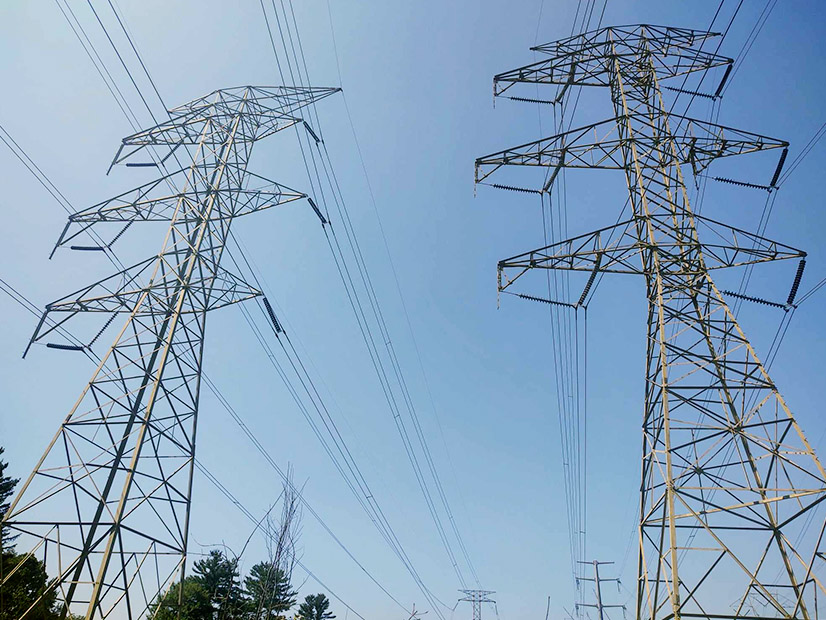Transmission owners filed requests for rehearing of Order 1920-A with FERC over the holiday break, saying the commission went too far in giving state regulators a role over cost allocation (RM21-17).
“This decision compels utilities to include, in compliance filings, cost allocation proposals they may neither sponsor nor support as well as consult with relevant state entities in specific circumstances,” Edison Electric Institute said in its filing. “In addition to the legal infirmities, these are not necessary to achieve the commission’s stated goal of meaningful state involvement, a goal EEI supports.”
EEI said it is seeking rehearing on limited issues “to ensure the statutory rights of transmission providers are not eroded and that Order 1920 is legally durable.”
Order 1920 required transmission planners to let state regulators in their footprint work on a cost allocation scheme, but Order 1920-A went further in requiring transmission planners to file that even if they disagree with what the states come up with.
“The commission declares that it will not be required to adopt the transmission provider’s proposal on compliance, ‘even if that proposal complies with the final rule’s requirements,’” EEI said. “Rather, the commission states that it need only select a replacement rate that complies with the final rule and that is adequately supported in the record.”
EEI also opposes Order 1920-A’s requirement that transmission providers consult with state regulators when they want to change cost allocation methods in the future after they already have complied with the rule.
The investor-owned utility trade group argued that by requiring transmission planners to file state-backed cost allocation methods under the Federal Power Act’s Section 206, Order 1920-A encroaches on their Section 205 rights as public utilities. The requirement to consult on future changes also encroaches on utilities’ rights under Section 205, EEI said.
EEI said the decision in Atlantic City Electric Co. v. FERC from 2002 effectively bars FERC from forcing utilities to file states’ cost allocation methods, or consulting with them on future changes.
“By requiring the public utilities to file the relevant state entities’ proposals, the commission is requiring those public utilities to cede their statutory rights to make filings under the FPA to the relevant state entities and to provide those entities with statutory rights that Congress did not intend them to have,” EEI said.
The authority to establish a replacement rate does not authorize FERC to provide state regulators with statutory authority reserved solely for public utilities, nor does it authorize FERC to require public utilities to cede those rights to state regulators, it added.
WIRES Group also filed a request for rehearing on the more state-friendly changes in Order 1920-A, saying the changes exceed FERC’s authority.
“The commission has no ratemaking or rate setting authority under FPA section 205,” WIRES said. “Section 205 simply vests the commission with the power to review such rates as made by public utilities and to modify them upon a finding of unlawfulness. The power to initiate rate changes rests with the public utility alone, and the commission cannot limit or prohibit public utilities from filing changes in the first instance.”
The intent of the law was to let public utilities act quickly without obstacles. Courts have recognized that a public utility’s Section 205 filing rights cannot be restricted by requiring negotiations or consultations.
The National Rural Electric Cooperative Association filed rehearing on the issue but takes a different angle in noting that state regulators often do not oversee its members or public power utilities.
“Under the laws of many states, the democratically elected boards of directors of electric cooperatives establish the cooperative’s rates independently of a state utility commission,” NRECA said.
Unlike its investor-owned counterparts, NRECA would not oppose states’ greater roles, but the definition of “relevant state entities” needs to be expanded. Co-ops are mostly regulated by elected boards of directors.
“The commission should clarify or modify the Order No. 1920‑A to require that all electric consumers in a state are comparably represented,” NRECA said. “Arbitrarily excluding, or allowing a planning region to exclude, the representatives of some electric consumers from the more robust process created by Order No. 1920‑A is clearly unreasonable, and the commission provides no reasonable justification for it given the stated purpose of Order No. 1920‑A’s modifications to the Final Rule.”




